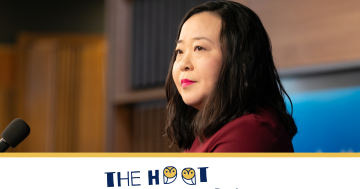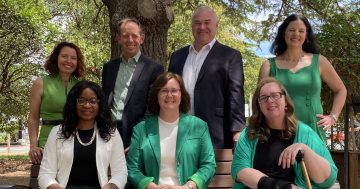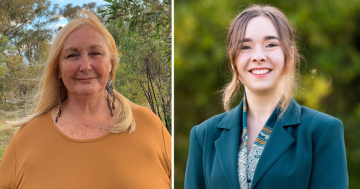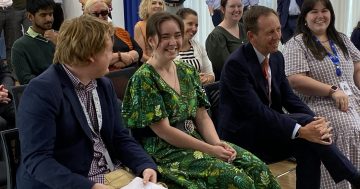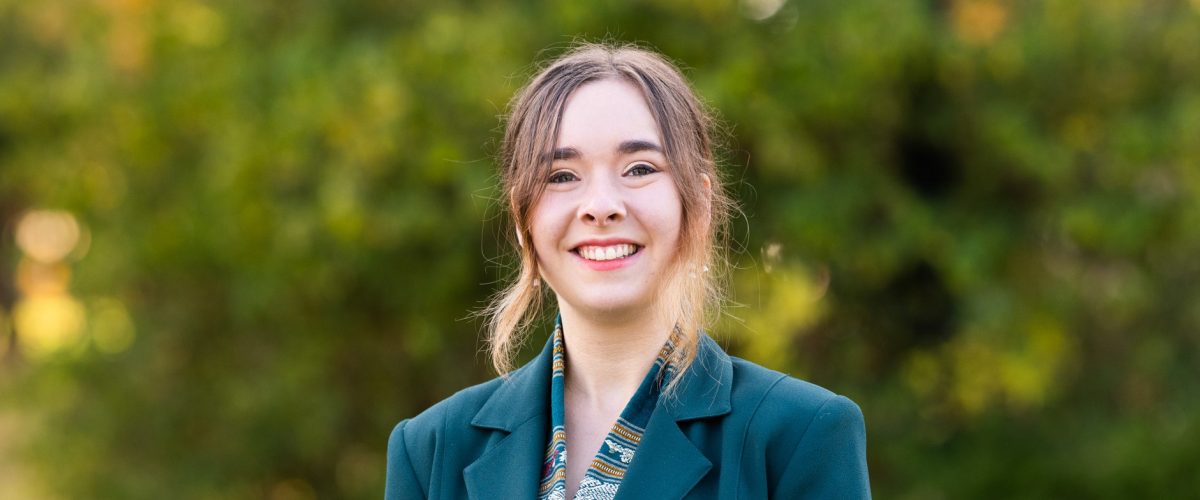
ACT Greens candidate Laura Nuttall ran for Brindabella in 2020 at just 20. Photo: Supplied.
If all goes according to the Greens’ plans (and it’s not a given), Johnathan Davis will be replaced by the second-youngest MLA ever to take their seat in the Legislative Assembly.
Mr Davis was himself a youthful representative, elected at 28. Laura Nuttall, who was previously one of his advisers, is just 24 (Roslyn Dundas was elected to the Assembly for the Australian Democrats back in 2001 at the age of 23).
Ms Nuttall is a recent ANU graduate with a bachelor’s degree in Asia Pacific studies and Politics, Philosophy and Economics. She ran as a candidate for Brindabella when she was 20 years old.
The Greens have always advocated for lowering the voting age – and cynically, that’s because impassioned young idealists are more likely to vote for the Greens’ vision.
But can someone in their mid-twenties – Ms Nuttall, or anyone her age – effectively participate in making decisions for the community as a whole? That’s not a leading question but a genuine query about whether they can have what it takes in the role.
Very young politicians have both succeeded before and also come adrift.
William Pitt the Younger famously became British Prime Minister at 24 and was regarded as an outstanding administrator and gifted politician. Of him, no less than William Wilberforce said: “For personal purity, disinterestedness and love of this country, I have never known his equal.”
A little closer to home, Kate Lundy became a senator at 28, James Paterson at 28 and Natasha Stott Despoja at just 26 (cue endless stories about her Doc Martens).
The argument is that the young must have their voices heard for they will inherit the earth (or Keith Richards will, depending on who dies first).
That’s true – but no more true than it is for everyone else all the time. Young people need a roof over their heads, a meaningful job and a fair crack at making a better future but so do the rest of us. The needs of the young are no more or less important than any other demographic.
Decisions made by politicians are often about complex matters affecting people’s everyday lives – of which very young people have little, if any, experience. So do vision, passion and idealism about the future make up for less understanding about, for example, how hard it is to raise children, pay a mortgage and keep your job?
Does wanting a better world for your own future empower you to make decisions for people who are nearing the end of their lives and also deserve respect, dignity and rights?
We don’t elect people to be carbon copies of ourselves in representative democracies, although they should respond broadly to the voters and represent their causes.
But people do bring their life experiences with them. The trend in Australia to bring extremely young people straight into fairly senior political roles has had some terrible consequences. It began with Kevin Rudd’s baby-faced advisors and has continued apace as politicians appoint advisors who have only been eligible to vote for one or two elections.
Again, cynically, this has been about manipulating the youth vote wherever possible as much as giving bright young things a go.
It’s also created a political class that relies on polling and gut instinct because they simply don’t have the life experience. A side note of the Lehrmann case was the revelation that Mr Lehrmann was providing advice on Australia’s defence policy to then Minister Linda Reynolds at just 24.
In the US, you cannot become a senator until you’re 30. In Australia, most enduring political careers flourish somewhere between 30 and 60, the point where you both have some real life experience under your belt and retain plenty of energy to deliver for your voters.
Ms Nuttall may well, like Pitt the Younger, be an outstanding politician if she ends up in the Legislative Assembly. She will need courage, support and good advice to make an impact. But it’s a trend that needs to be treated with real caution.
Intelligence is not the same thing as wisdom. Passion is not a substitute for good judgment. And both wisdom and judgment are generally conferred with some experience of life.














